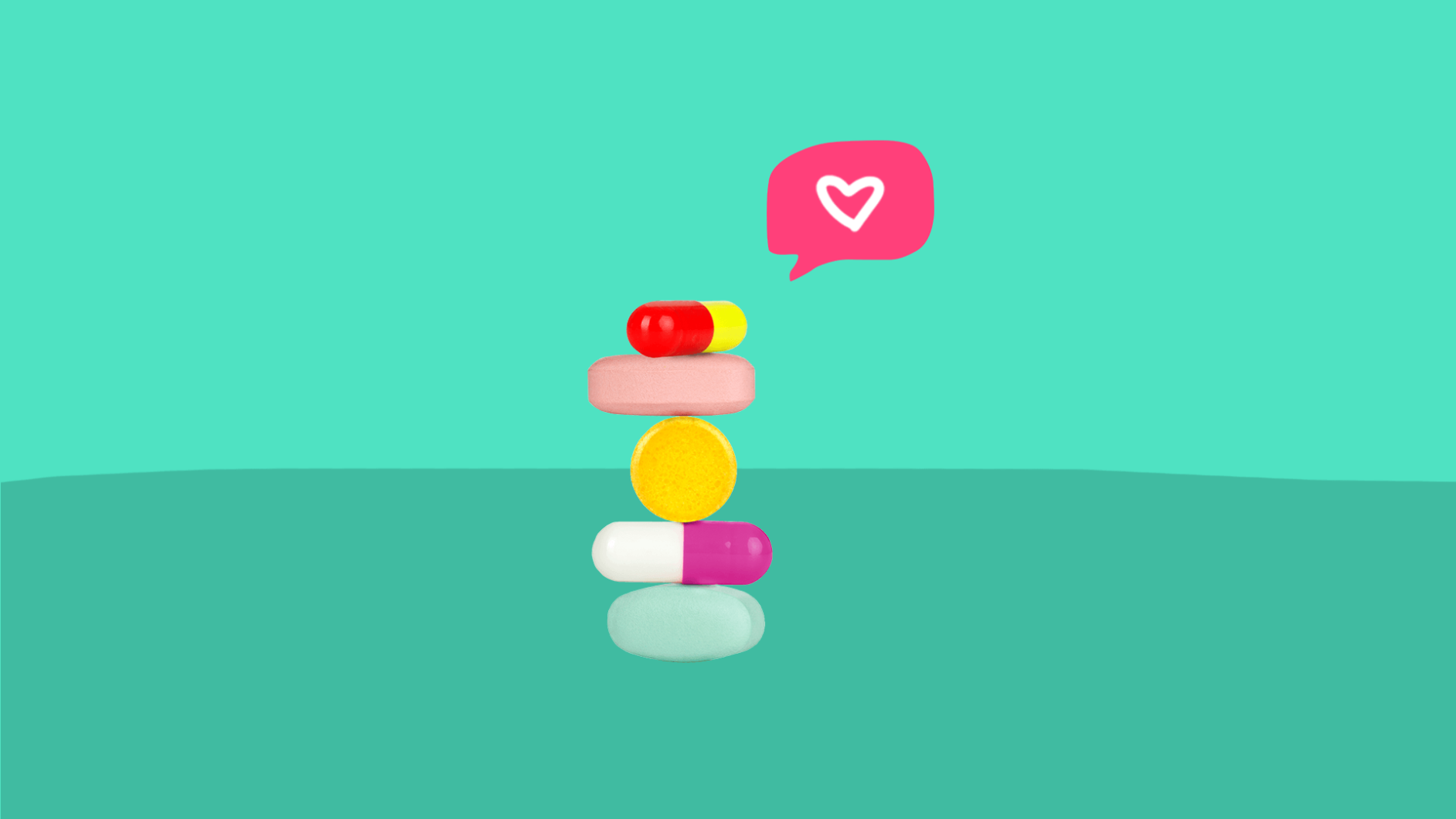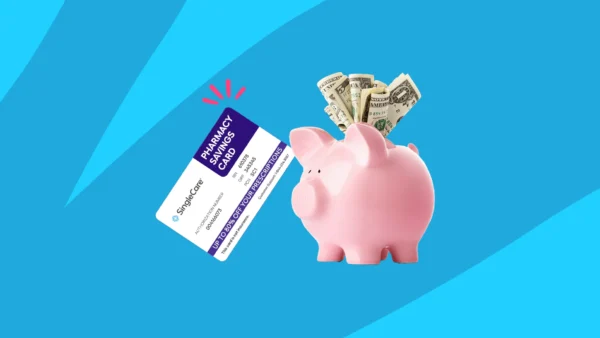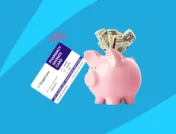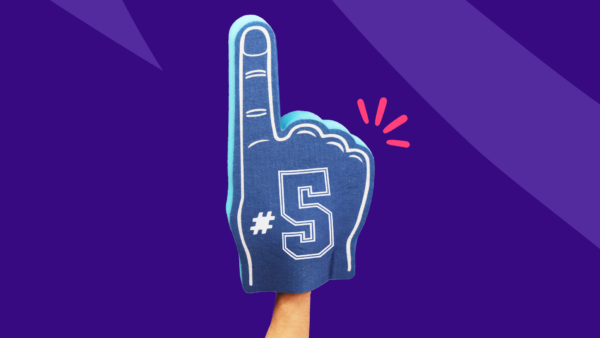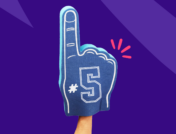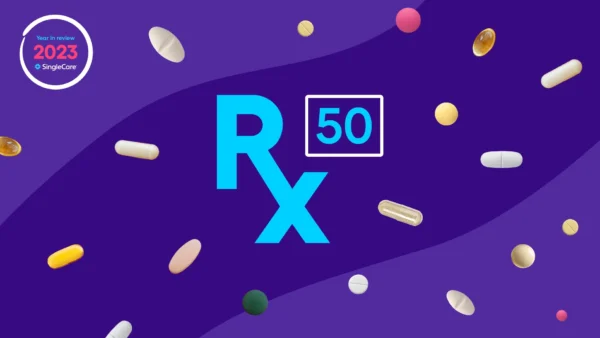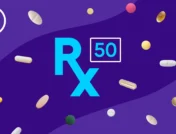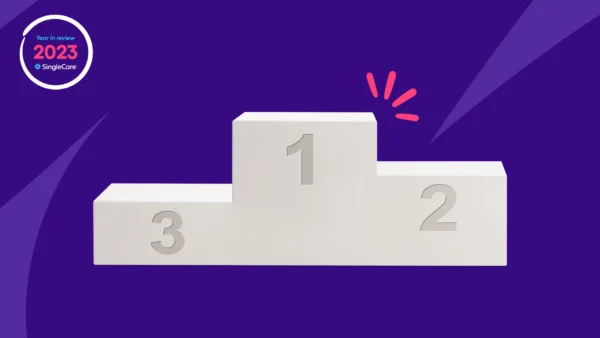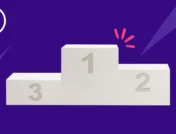In September, the leaves start to change, the weather cools, children (normally!) head back to school, and, according to SingleCare data, more people head to the pharmacy counter to fill prescriptions for antidepressants.
These are the most popular antidepressants this month, according to SingleCare data:
| Drug name | Brand name | Get coupon |
| 1. Fluoxetine hydrochloride | Prozac | Get coupon |
| 2. Trazodone hydrochloride | Desyrel, Desyrel Dividose, Oleptro, Trazodone D | Get coupon |
| 3. Sertraline hydrochloride | Zoloft | Get coupon |
| 4. Escitalopram oxalate | Lexapro | Get coupon |
| 5. Citalopram hydrobromide | Celexa | Get coupon |
Why are antidepressants usually so popular this time of year?
The days are shorter
One reason that antidepressant prescriptions are more prevalent in September could be the lack of daylight. Seasonal affective disorder, or SAD, affects almost half a million people in the United States. Though most people associate SAD with mid-winter, many people also experience SAD symptoms as the fall season begins.
According to Michael Lutter, MD, there’s a reason why September can be a prime month for the onset of SAD symptoms: “September (when the Fall equinox occurs) is a month of rapidly decreasing daylight, and this rapid change can trigger depression in sensitive populations.” As people return to their regular routines from the end of the summer, they may experience feelings of sadness or anxiety, particularly as this transition coincides with the change to cooler weather and shorter days. SSRIs, like Zoloft, Prozac, Celexa, and Lexapro are the most popular antidepressants.
The return of routines
In addition to shorter days, September marks the start of the back-to-school season, and many people return to work after summer vacations. According to Alex Dimitriu, MD, the founder of Menlo Park Psychiatry & Sleep Medicine, many factors can contribute to a declining mood in September: “The official ‘return to work’ always adds stress as people return to ordinary business and school.”
Many parents, in particular, may want to catch-up on any outstanding doctors’ appointments while they can still take advantage of their extra free time. These extra screenings provide patients with the opportunities to disclose any mental health symptoms they might be experiencing, which can lead to an uptick in antidepressant prescriptions.
RELATED: A beginner’s guide to going on antidepressants
The transition to a new season
Transitions of any kind can be challenging for people with mental health conditions. When summer changes to fall, it’s a change in sleep schedule, daily activities (goodbye summer vacations!), and general life circumstances. Getting used to the structure of the new season can spark anxiety.
Mixed in, can be a bit of the end-of-summer blues, which can become an anniversary reaction. As the days start to get cooler, you may remember that winter is traditionally a difficult time for your mood. Recalling the low feelings can trigger the onset of negative feelings or a psychiatric reaction—prompting you to call your healthcare provider for a refill.
Are you considering a fill?
This year, more people may be experiencing depression for the first time because of the ongoing pandemic. According to the CDC, 1 in 4 Americans between the ages of 18 and 24 say they’ve experienced depression since COVID-19 began to spread across the U.S. A SingleCare survey found that in March, 14% of respondents said they felt more depressed because of coronavirus.
If you’re considering filling a prescription for antidepressants for the first time, it can be confusing to navigate the available wealth of information. Once you’ve consulted with your doctor and determined whether or not antidepressants are right for you, you might still have a lot of outstanding questions. There are several different types of antidepressants, multiple well-known generics and name brands, and often conflicting information about when to use it and who is the right candidate. Some antidepressants, like Trazodone, are even prescribed to treat different conditions—like insomnia.
The U.S. Department of Health and Human Services (HHS) has expanded access to telehealth services across the country. As a result, more people have access to medical care from home, making it easier for people experiencing mental health symptoms to seek help. Make sure to keep an open channel of communication with your care provider until you find the right treatment for your symptoms.
For more information on seeking help or treatment for depression, visit the National Alliance on Mental Health or call the Substance Abuse and Mental Health Services Administration helpline at 1-800-662-HELP. If you or anyone you know is suffering from suicidal thoughts, call the National Suicide Prevention Lifeline at 1-800-273-8255 or visit the nearest emergency room.



